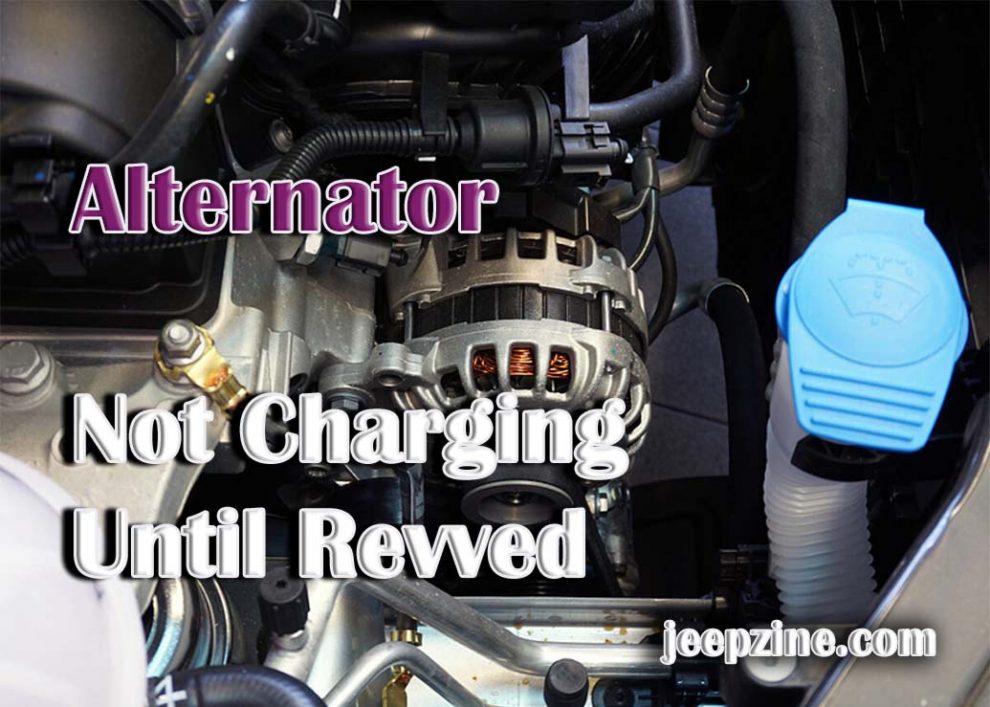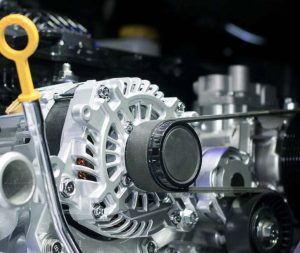When an alternator is not charging until revved up, it can be a frustrating problem to diagnose and repair. In this article, we’ll provide a comprehensive guide on how to troubleshoot an alternator that is not charging until revved. We’ll go through the common causes of this issue, as well as other possible causes and solutions for getting your vehicle back on the road with a properly functioning alternator.
Common Causes for an Alternator Not Charging Until Revved
A faulty battery connection, malfunctioning voltage regulator or bad ground cable connection are all common causes for an alternator not charging until revved up. Let’s take a look at each of these in more detail:
-
Faulty Battery Connections – If your car battery has loose or corroded connections, it could be preventing the alternator from charging properly when the engine is idle or at low RPMs. This can also cause the starter motor to struggle to turn over when trying to start the car since there is not enough power being sent to it from the alternator when idle speed is low. To address this issue, you should check all of your battery connections and ensure they are properly tightened, as well as clean any corrosion that you may find.
-
Malfunctioning Voltage Regulator – The voltage regulator is responsible for controlling the amount of electrical flow between the alternator and battery. If this part is malfunctioning, it can cause an alternator not to charge until revved up. To check for a malfunctioning voltage regulator, you can use a multimeter to test the voltage output of your alternator at idle speeds and at higher RPMs. If it significantly increases when revved up, then the voltage regulator may be faulty and require replacement.
-
Bad Ground Cable Connection – Another common cause for an alternator not charging until revved up is a bad ground cable connection from the battery to engine block or frame of your vehicle’s bodywork. This connection allows for electricity to flow correctly from battery to starter motor and then onwards to other electrical components in your vehicle such as headlights and blower fans etc. Check all ground cable connections between battery and body of car/engine block – if corroded or loose then clean/tighten accordingly in order to ensure correct power flows through all components within the vehicle’s electrical system.
Diagnosing the Problem
In order to accurately diagnose an alternator that is not charging until revved up, you will need to do a series of tests with a multimeter and other diagnostic equipment. This can include testing for voltage output at different RPMs as well as checking battery connections/ground cables etc. Once you have identified the cause of the problem, then you can repair or replace any faulty components in order to get your car running again without further issues.
Conclusion
If your alternator is not charging until revved up, then there are a number of possible causes that could be affecting its performance. From faulty connections and malfunctioning components such as voltage regulator or drive belt tensioner, all these issues need careful diagnosis in order to identify and repair them correctly. We hope this article has provided some useful tips and techniques on how to troubleshoot an alternator that is not charging until revved up.


 Faulty Battery Connections – If your car battery has loose or corroded connections, it could be preventing the alternator from charging properly when the engine is idle or at low RPMs. This can also cause the starter motor to struggle to turn over when trying to start the car since there is not enough power being sent to it from the alternator when idle speed is low. To address this issue, you should check all of your battery connections and ensure they are properly tightened, as well as clean any corrosion that you may find.
Faulty Battery Connections – If your car battery has loose or corroded connections, it could be preventing the alternator from charging properly when the engine is idle or at low RPMs. This can also cause the starter motor to struggle to turn over when trying to start the car since there is not enough power being sent to it from the alternator when idle speed is low. To address this issue, you should check all of your battery connections and ensure they are properly tightened, as well as clean any corrosion that you may find.
Add Comment